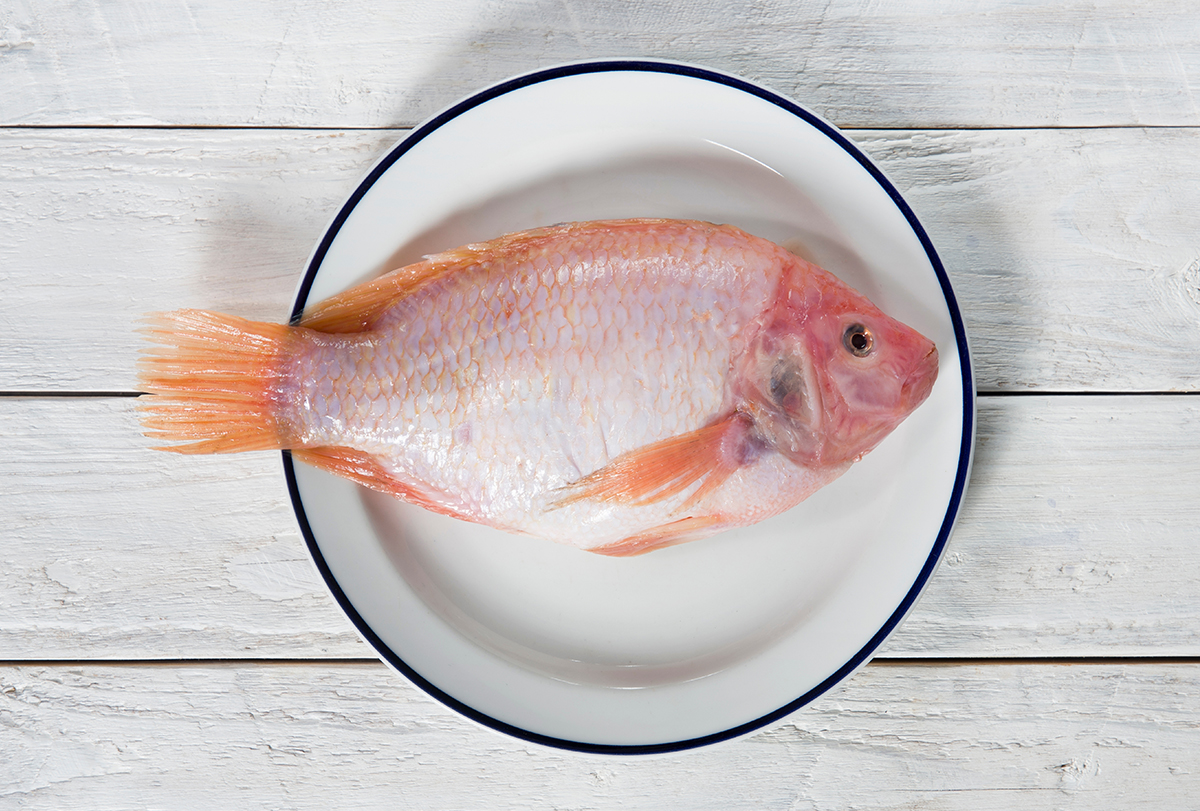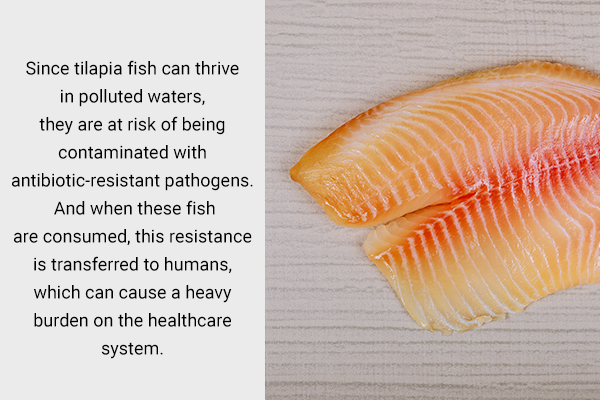In this article:
Yes, consuming tilapia frequently can be a good way to lose weight. Tilapia is a popular fish because of its low-to-moderate fat and high-quality protein content. This fish presents multiple health benefits in terms of losing weight, boosting metabolism, and maintaining muscle mass. (1)

Tilapia is a widely farmed freshwater fish in the world. It originated from Africa and the Middle East but is also found abundantly in many tropical and subtropical regions. (1)
When it comes to weight loss, eating unprocessed, good-quality protein is of utmost importance. Recent studies have found a relationship between eating more protein than the recommended daily allowance (2 g of protein for each kg each day) and sustainable weight loss. (2)
All fish are high in protein and can be a valuable addition to any weight loss diet. Naturally, tilapia is no different.
How Can Eating Tilapia Help in Weight Loss?
As mentioned, tilapia is a good source of protein while being low in calories, carbohydrates, and fat.
A high-protein diet boosts metabolism and increases the number of calories you burn even at rest. These effects lead to significantly more fat loss as compared to a regular calorie-restricted diet. (2)
A single 87 g serving of tilapia contains 111 calories, 23 g of protein, and 2.3 g of fat. (3) In comparison, here is the amount of protein and fat content for the same weight of other high-protein food choices:
- 97% lean beef contains 105 calories, 19 g of protein, and 2.6 g of fat. (4)
- Chicken breast contains 96 calories, 20 g of protein, and 1.1 g of fat. (5)
- Salmon contains 110 calories, 18 g of protein, and 3.8 g of fat. (6)
Therefore, tilapia can be a great and cost-effective inclusion for a weight loss diet.
Nutrition in Tilapia
Tilapia is also a great source of other nutrients, making it a worthwhile addition to any diet. One fillet of cooked tilapia (87 g) contains 111 calories and 23 g protein. It also provides: (3)
- 16% of the daily requirement of vitamin D
- 26% of the daily requirement of vitamin B3
- 68% of the daily requirement of vitamin B12
- 12% of the daily requirement of vitamin B5
- 86% of the daily requirement of selenium
- 14% of the daily requirement of phosphorus
Caution With Tilapia

Due to the nature of pollution where tilapia thrives, there are two main concerns with its consumption.
Because tilapia can thrive in polluted waters, they are at risk of being contaminated with antibiotic-resistant pathogens. And when these fish are consumed, this resistance is transferred to humans, which can cause a heavy burden on the healthcare system, as antibiotic-resistant pathogens can cause infections that persist for long durations and cannot be treated with common antibiotics.
Also, tilapia thrives in water polluted with industrial waste that contains heavy metals. These heavy metals accumulate in the flesh of tilapia and can be a source of heavy metals in human diets.
Though the amount of heavy metal is dangerous if the fish is eaten daily in large amounts, farmed tilapia is likely a safer option. (7)
It is also important to note that not all tilapia will contribute to antibiotic resistance. Most fish farmers breed their fish in clean water, and this fish is generally safe for consumption. (8)
Practical Takeaways
- Tilapia is a good source of lean protein and is therefore beneficial for weight loss.
- High-protein diets increase metabolism, which increases the calories burned even at rest and therefore contributes to sustainable long-term weight loss.
- Was this article helpful?
- YES, THANKS!NOT REALLY


